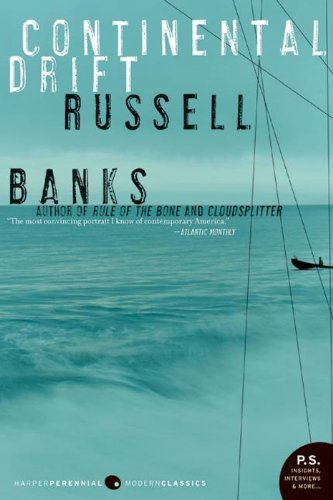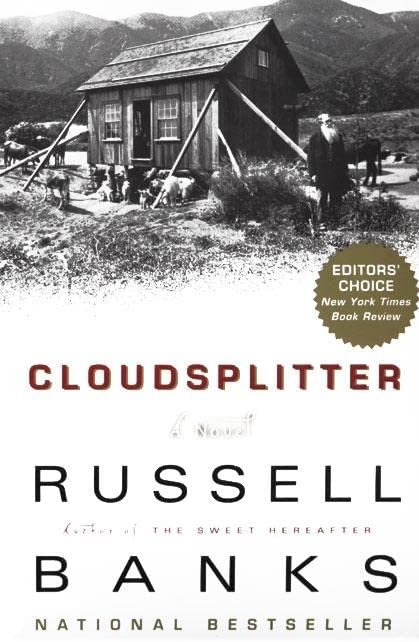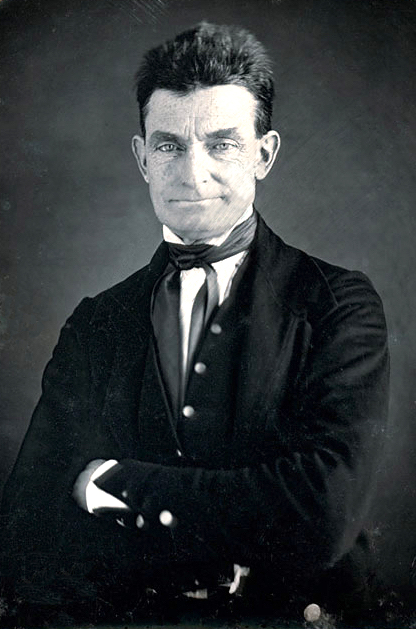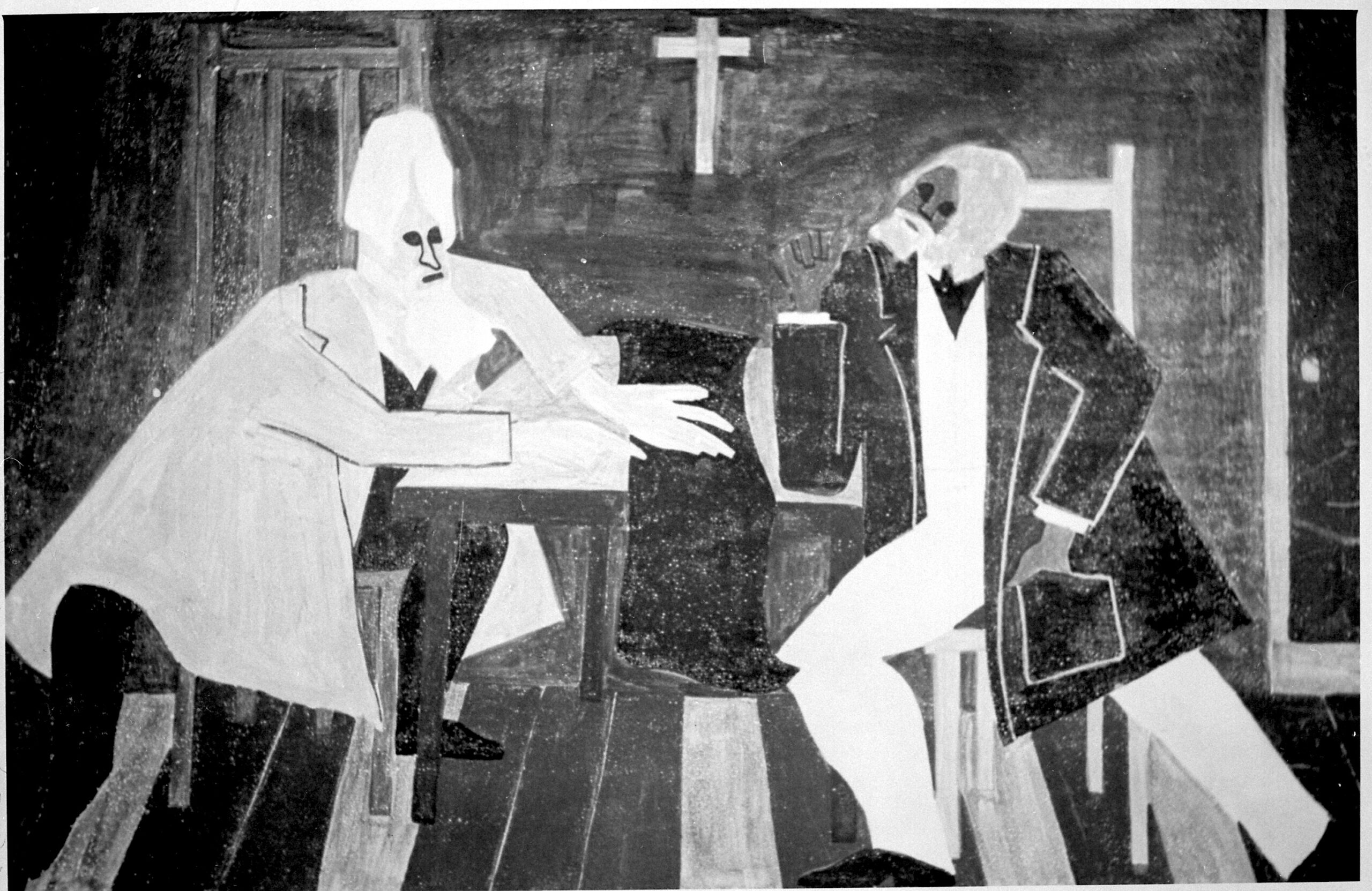Few contemporary novelists have explored the undercurrents of American society with more insight and pathos than Russell Banks, who died earlier this month.

Russell Banks – by Mr. Fish.
By Chris Hedges
ScheerPost.com
 The deep malaise that defines American society — the rage, despair and widespread feelings of betrayal and loss — is rarely captured and almost never explained in the pages of newspapers or on screens.
The deep malaise that defines American society — the rage, despair and widespread feelings of betrayal and loss — is rarely captured and almost never explained in the pages of newspapers or on screens.
To grasp what has happened to the United States, the savage economic and emotional cost of deindustrialization; the destruction of our democratic institutions; the Neolithic violence that sees us beset with almost daily mass shootings in malls, offices, schools and movie theaters; the rise of the militarized state; and the consolidation of national wealth by a tiny cabal of corrupt bankers and corporations, we must turn to our artists, poets and writers.
Foremost among writers who explored our peculiar American zeitgeist was the novelist Russell Banks, who died on Jan. 7 at the age of 82.
His novel Continental Drift tells the story of Bob Dubois, a 30-year-old New Hampshire oil burner repairman who moves his family to Florida in a forlorn effort to strike it rich, and Vanise Dorinville, a Haitan immigrant, who flees Haiti in an overcrowded boat to the United States and endures rape, forced labor and the drowning of her child and nephew.
With these two plot lines, Banks juxtaposes the glittering promise of America against its stark, indifferent callousness.
 “The more a man trades off his known life, the one in front of him that came to him by birth and the accidents and happenstance of youth, the more of that he trades for dreams of a new life, the less power he has,” Banks writes.
“The more a man trades off his known life, the one in front of him that came to him by birth and the accidents and happenstance of youth, the more of that he trades for dreams of a new life, the less power he has,” Banks writes.
“Bob Dubois believes this now. But he’s fallen to a dark, cold place where the walls are sheer and slick, and all the exits have been sealed. He’s alone. He’s going to have to live here, if he’s going to live at all. This is how a good man loses his goodness.”
The novel is a savage indictment of the divides erected by globalization, racism, class and political systems. It was written, as Banks noted in the last line of the book, to “destroy the world as it is.”
In Affliction the main character, Wade Whitehouse, lives in a dilapidated trailer and works odd jobs. In The Sweet Hereafter, a rural community is convulsed by a fatal school bus accident that kills 14 children.
And in two other novels, The Lost Memory of Skin, the story of a 22 -year-old living with other sex offenders under a south Florida causeway, and Rule of the Bone, about a sexually abused homeless 14-year-old boy, Banks employs the plight of disaffected youths to expose the hypocrisy, mendacity and banality of the adult world.
Banks also turned his fierce and uncompromising gaze on artists, as he did in his novel Foregone where sections of the book are scathingly autobiographical. It is written through the eyes of a renowned documentary filmmaker who is dying of cancer, the disease that took Banks’ life.
It delves into the often selfish motivations of artists, the tricks of memory, the myths we use to build our fictional personas, the ways wealth can suffocate and corrupt us, the mutations of self that estrange us from those we love, the deep fear of being unloved and the heady idealism that is at once the charm and curse of youth.
“Time, like cancer, is the devourer of our lives,” he writes in Foregone. “When you have no future and the present doesn’t exist, except as consciousness, all you have for a self is your past. And if, like Fife, your past is a lie, a fiction, then you can’t be said to exist, except as a fictional character.”
Banks had no illusions about human nature or the moral neutrality of the universe.
“Of all the animals on this planet, we are surely the nastiest, the most deceitful, the most murderous and vile,” he writes. “Despite our God, or because of him. Both.”
Support CN’s
Winter Fund Drive!
Banks grew up in poverty. He dropped out of Colgate University — where he had been given a full scholarship — after eight weeks and hitchhiked through a snowstorm to Miami. His plan was to go to Cuba and fight with Fidel Castro.
By the time he arrived in Florida, the Cuban Revolution was over. This was fortuitous, he said, as he had no idea of how to get to Cuba from Florida and did not speak Spanish.
He worked as a laborer, including as a mannequin dresser at a Montgomery Ward department store and in New Hampshire with his father, who was a plumber and pipe fitter. Earl Banks was an alcoholic who was physically abusive to his son, striking him when he was 2 and damaging his left eye.
Banks said he at once “hated and adored” his father, who abandoned the family when he was 12. His novels often contain fraught relationships between fathers and sons.
Recovering Humanity & Dignity
Banks writes with brutal honesty in his novels, short stories and screenplays about the struggles and unattainable dreams of those who have been marginalized, neglected and demonized by the wider society. He makes visible those rendered invisible.
He never romanticizes the poor and the underclass, but at the same time has a deep empathy and love for those he portrays — those living on the edge in trailer parks, traumatized Vietnam veterans, former convicts, outcasts, immigrants and people of color, especially African-Americans.
He places race and class at the center of his understanding of American society. Few contemporary writers or artists in any genre have done more to tell the story, or recover the humanity and dignity, of those cast aside and reviled in American society.
 Bank’s masterpiece is his novel Cloudsplitter, the fictional account of the life of abolitionist and insurrectionist John Brown. The title of the book is taken from the translation of the Algonquin name, Tahawus, for Mount Marcy, the highest peak in the Adirondacks in upstate New York where it loomed over Brown’s farm.
Bank’s masterpiece is his novel Cloudsplitter, the fictional account of the life of abolitionist and insurrectionist John Brown. The title of the book is taken from the translation of the Algonquin name, Tahawus, for Mount Marcy, the highest peak in the Adirondacks in upstate New York where it loomed over Brown’s farm.
Banks, as with all his novels, conducted prodigious amounts of research. There are few factual deviations from Brown’s turbulent life. Banks lived in upstate New York close to where Brown is buried.
In his 22-piece series “The Legend of John Brown,” first exhibited in 1941, the painter Jacob Lawrence chronicles a seminal stage in the life of the abolitionist in each panel. The first depicts Brown as Christ nailed to a cross with blood flowing from his nailed feet to the ground.
The next scenes portray Brown as a man of exceptional religious conviction, willing to suffer financial failure and hardship in his fight for abolition. The middle compositions tell the story of Brown’s plans to free slaves, including his raids that massacred pro-slavery settlers in Kansas, his failed attack on the U.S. arsenal at Harpers Ferry, Virginia; the final panels portray his capture with head bent, covered by long hair and holding a cross, his sentencing and subsequent hanging.
Brown’s religious zeal and martyrdom became a catalyst to the Civil War that followed. He remains one of the most enigmatic figures in American history, a bundle of contradictions, a man of rigid morality and high ideals, who at the same time could murder those who supported slavery with unmitigated savagery.
W.E.B. Du Bois explained the inherent contradictions of Brown’s execution in a 1932 speech he gave at Harpers Ferry. He said:
“Some people have the idea that crucifixion consists in the punishment of an innocent man. The essence of crucifixion is that men are killing a criminal, that men have got to kill him … and yet that the act of crucifying him is the salvation of the world. John Brown broke the law; he killed human beings … Those people who defended slavery had to execute John Brown although they knew that in killing him they were committing the greater crime. It is out of that human paradox that there comes crucifixion.”
John Brown & Those Closest to Him
The novel captures the interior life of Brown and those closest to him, exploring the visions, doubts, fears, self-deceptions and passions that defined them. It required “the interweaving of history, biography and letters and interviews,” Banks told me in an interview in February 2022, with the ability to enter into “the subjective interior of a particular person.”
This exploration of interior lives is something historians, biographers and journalists rarely achieve. It allows us to understand “the ambiguities of the subjective human experience.”

John Brown by Augustus Washington, 1846-47. (Public domain, Wikimedia Commons)
The narrator of Cloudsplitter is Owen Brown, the third son of John Brown, who was with his father during most of the defining moments of his life, including the raid on Harpers Ferry.
In the rare book room at Columbia University, Banks poured through a dusty box of interviews with Brown’s elderly surviving children taken by Catherine Mayo, assistant to Oswald Garrison Villard, the first biographer of Brown at the turn of the 20th century.
Owen had died in 1889, so was not included in the interviews, but he serves as Banks’ vehicle to explain Brown. The novel delves into issues of class, race, capitalism and the oppressive power of a domineering father.
“It’s meant to even invoke Abraham and Isaac,” Banks told me of his novel.
“It’s meant to tell the father-son story when the father is loyal to a force or figure that’s larger than family and the tensions that arise from that, and the son’s attempt to ally himself with the father’s allegiance in order to please the father rather than simply to share in the same allegiance. This is an ancient story I’m telling, a mythic story really. But Brown’s life and his relation, particularly to his son Owen, really evokes those myths. It’s hard to resist it — once I started working with the materials. I mean it was there. I didn’t have to make that up.”
Brown, like many committed revolutionaries, from Vladimir Lenin to Che Guevarra, was attempting to forge a new world, one created through violence and one he was willing to be martyred to achieve. He saw himself as a latter day Oliver Cromwell, leading a militia that included four of his sons to attack pro-slavery settlers in Kansas. In 1856, Brown’s armed band butchered two families of Tennessee farmers in Pottawatomie County, Kansas.
“He believed slavery was evil, but in a profound Biblical sense, not in a civic sense although it was, of course,” Banks said of Brown.
In the novel, Owen reflects on the Kansas murders:
“On that dark May night in ’56, I truly thought that we were shaping history, that we were affecting the course of future events, making one set of events nearly impossible and another very likely, and I believed that the second set was morally superior to the first, so it was a good and necessary thing, what we were doing. We could slay a few men now, men who were guilty, perhaps, if only by association, and save millions of innocents later. That’s how terror, in the hands of the righteous, works.”
Following the passage of the Fugitive Slave Act of 1850, which stripped Black people, even those who had escaped to northern states, of all legal protection and imposed heavy penalties on anyone who assisted an enslaved or formerly enslaved person, Brown may have been correct in his belief that violence was the only route to end slavery.

Frederick Douglass argued against John Brown’s plan to attack the arsenal at Harpers Ferry, painting by Jacob Lawrence. (U.S. National Archives and Records Administration, Public domain, Wikimedia Commons)
But Banks refuses to absolve Brown for his acts of terrorism, which were designed to spread fear among pro-slavery Kansas farmers, nor Brown’s lust, on some level, for his own death.
“There is an anger that drives one, not to suicide or even to contemplate it, but to place oneself in a situation which has as its outcome only two logical conclusions — a miraculous triumph over one’s enemies, or one’s own death — so that the line between suicide and martyrdom is drawn so fine as not to exist,” Banks writes.
Brown lived for a month in Frederick Douglass’ attic before the 1859 raid on Harpers Ferry, which was crushed by Colonel Robert E. Lee and Lt. James Ewell Brown “Jeb” Stuart, both of whom owned slaves and would later fight for the Confederacy.
“Poor, deluded fools,” Banks writes of poor whites in Cloudsplitter.
“Because their skin’s as white as the rich man’s, they believe that they might someday be rich themselves. But without the Negro, Owen, these men would be forced to see that, in fact, they have no more chance of becoming rich than do the very slaves they despise and trample on. They’d see how close they are to being slaves themselves. Thus, to protect and nurture their dream of becoming someday, somehow, rich, they don’t need actually to own slaves, so much as they need to keep the Negro from ever being free.”
Brown desperately wanted Douglass, along with Harriet Tubman, to join his assault, which he hoped would ignite a massive slave revolt. But as much as they admired Brown, they were deeply skeptical of his plan.
They feared the full weight of the U.S. military and believed that Southern slaveholders would react by augmenting their reign of terror and randomly execute any enslaved person seen as a potential threat. They had been enslaved and had a far more realistic understanding of the institution of slavery and the lengths it would go to preserve itself.
“Father believed that the universe was a gigantic clockworks, brilliantly lit,” Banks has Owen say near the end of the novel.
“But it’s not. It’s an endless sea of darkness moving beneath a dark sky, between which, isolate bits of light, we constantly rise and fall. We pass between sea and sky with unaccountable, humiliating ease, as if there were no firmament between the firmaments, no above, or below, here or there, now or then, with only the feeble conventions of language, our contrived principles, and our love of one another’s light to keep our own light from going out: abandon any one of them, and we dissolve in darkness like salt in water. For most of my life, surely since that day in October when I fled the field at Harpers Ferry, I have been a steadily diminishing light — until the day when I began to set down this long account, and my light flared up as it never had before.”
Banks understood the original sins of America and their consequences. He grappled in his writing with the distressing pathologies that give rise to the horrors carried out in our name overseas and at home. He forced us to look at ourselves, to see who we are, all the while holding out a flicker of hope that if we can grieve for others, we might change.
Chris Hedges is a Pulitzer Prize–winning journalist who was a foreign correspondent for 15 years for The New York Times, where he served as the Middle East bureau chief and Balkan bureau chief for the paper. He previously worked overseas for The Dallas Morning News, The Christian Science Monitor and NPR. He is the host of show “The Chris Hedges Report.”
Author’s Note to Readers: There is now no way left for me to continue to write a weekly column for ScheerPost and produce my weekly television show without your help. The walls are closing in, with startling rapidity, on independent journalism, with the elites, including the Democratic Party elites, clamoring for more and more censorship. Bob Scheer, who runs ScheerPost on a shoestring budget, and I will not waiver in our commitment to independent and honest journalism, and we will never put ScheerPost behind a paywall, charge a subscription for it, sell your data or accept advertising. Please, if you can, sign up at chrishedges.substack.com so I can continue to post my Monday column on ScheerPost and produce my weekly television show, “The Chris Hedges Report.”
This column is from Scheerpost, for which Chris Hedges writes a regular column. Click here to sign up for email alerts.
The views expressed are solely those of the author and may or may not reflect those of Consortium News.
Support CN’s
Winter Fund Drive!
Donate securely by credit card or check by clicking the red button:


Russel Banks was one of the best and most important authors of our time, in my opinion. Thank you Chris Hedges for this moving tribute.
Thanks to Chris Hedges for this tribute to Russell Banks and his fine creations, including experiments with novel form. The Sweet Hereafter, for example, explores multiple first person point of view for its main characters. Banks is honest, a seeker, not a pop formulist with narrative sales foremost. I would also like to recommend the comments from 2019 in a recent Ray McGovern piece re-published by CN, which demonstrate the strong, searching qualities of this forum:
“On the anniversary of the “assessment” blaming Russia for interfering in the 2016 election there is still no evidence other than showing the media “colluded” with the spooks, Ray McGovern wrote on Jan. 7, 2019.”
hxxps://consortiumnews.com/2023/01/07/a-look-back-at-clappers-jan-2017-assessment-on-russia-gate/
“Affliction” is stunning. That’s the only one I’ve read by him, and it was fantastic.
The fear you and your article speak to is being spread quietly like lava but with a ghosting action; that affect simply those whom believe they have the right to comment on points and facts, of others have worked so hard to see known. Yesterday I wrote the same tired comments dealing with pollution of our lands for extreme profits and the pollution of the news we pay to be fed. My efforts were not only dismissed I was ‘banned’ as a taxpaying citizen who has never broken any law or known regulation in 72 years.
This is the first time I have been directly felt exposed through punishment. Take care, and know many back you and Professor Chomsky….(and staff included).